Right Here, Right Now | Strange Days at 25
Realistic science fiction films, as a general rule, don’t age as well as fantastical space operas. When you set your film “fifteen minutes into the future” it’s hard for that to stay relevant when that becomes the past. Those that manage it best are those that limit their changes, and wind up feeling like an alternate history rather than science fiction. Strange Days, released 25 years ago and set 20 years ago, is one of the few films that manages to pull this off and it’s why the film can still feel relevant today.
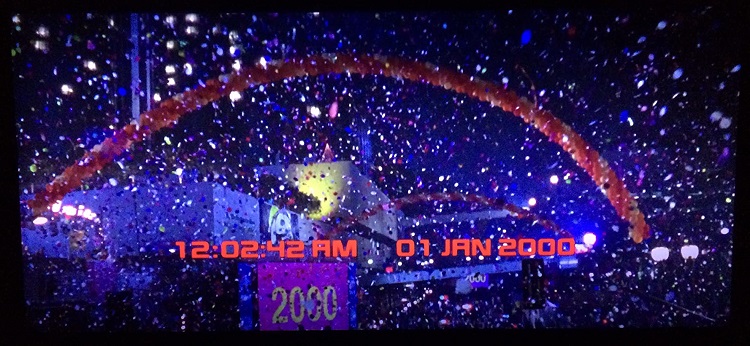 The two changes the film projected were simple. The first was that the LA riots of the early 90s (triggered by the acquittal of four police officers who had been captured on video beating a suspect) would cause a cycle of police militarization and civil unrest that would escalate to dystopian levels by the end of the decade.
The two changes the film projected were simple. The first was that the LA riots of the early 90s (triggered by the acquittal of four police officers who had been captured on video beating a suspect) would cause a cycle of police militarization and civil unrest that would escalate to dystopian levels by the end of the decade.
The second is the main gimmick of the movie: the development of a means to record and play back human brainwaves, allowing you to experience the actions and sensations of other people as if they were your own. This is done via the SQUID: the “Super-conducting Quantum Interference Device”. A mesh of plastic and electrodes that lays on your scalp and transmits or receives wirelessly to an ersatz minidisc player, this device sounds just plausible enough for the movie to be believable while also being unusual enough to hook your interest and give the writers enough freedom to do some interesting things with it. It helps that the film doesn’t event fantastical slang – the recordings (for which minidiscs are used as props) are just called “tapes”, while using them is simply “playback”.
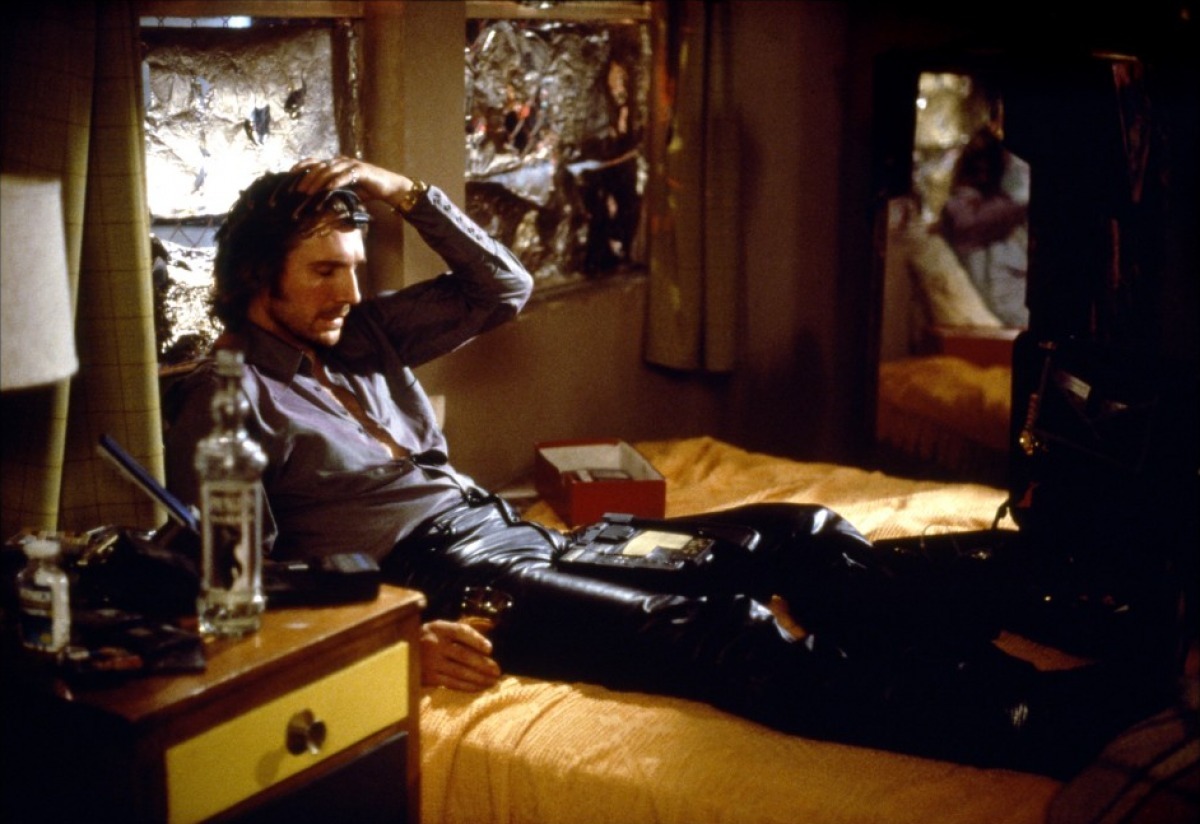
The plot centres around Lenny Nero, a black market dealer in illegal brain recordings played by Ralph Fiennes. This casting choice is a large part of what holds the movie together, as Fiennes needs to give Lenny enough charisma to compensate for the sleazy actions we see him take part in during the early parts of the movie. Lenny Nero is a broken man, an ex-cop who has never really recovered from being dumped by the love of his life (rock singer Faith, played by Juliette Lewis). He drifts from hustle to hustle, spending nights alone with brain recordings of happier times until an old friend, a prostitute on the run from two murderous policemen (Vincent D’Onofrio and William Fichtner), reaches out to him for help.
Lenny initially brushes it off but when he’s delivered a tape of the friend being brutally raped and murdered (from the murderer’s POV, in a deeply disturbing scene) then he has to take it seriously. The only people he can turn to are Max (an old friend from the police force played by Tom Sizemore) and Mace (a limo driver whose son he bonded with during a case and who has feelings for him).
Mace is played by Angela Bassett, another powerhouse actor who helps to elevate the film by giving someone who could easily have been a stock “bad ass” the real emotional depth that the film needs. The last piece of the movie is Michael Wincott (fresh off his role as Top Dollar in The Crow) as Philo Gant, a music producer who is Faith’s current abusive lover and who has Lenny beaten up multiple times for trying to see her. Wincott is perfect for the mixture of sleaze and unhinged mania the role requires. (Rumours have swirled for years that Bono, of all people, was originally in the running for the role.)
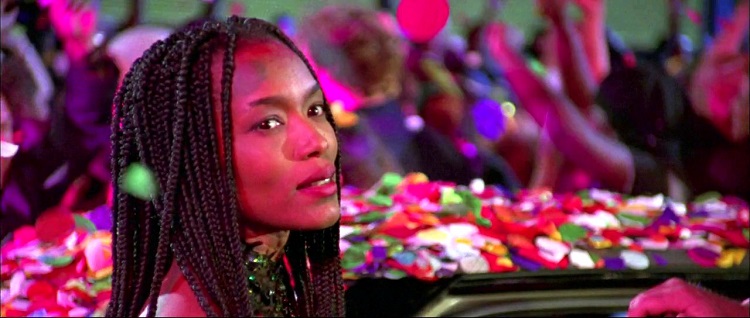
The music industry plays a large role in the film, but it’s the music of the film itself that is probably its best aspect. Director Kathryn Bigelow made the inspired choice to use contemporary music that was popular outside the United States at the time, bands like Skunk Anansie, Tricky and Lords of Acid. Faith’s songs in the film are actually PJ Harvey songs, while French duo Deep Forest composed the score.
The result at the time was music that sounded unfamiliar to an American audience but was close enough to be believable as what would be popular in a few years time. Nowadays it’s just a fine little time capsule of “good 90s music”, plus a great industrial cover of The Doors’ “Strange Days” by Prong that drifts in and out as diegetic music throughout the film.
A large part of the film’s budget went on organising a 7-hour rave party that serves as the backdrop for the finale (which takes place on December 31st 1999). Music was also where the film had its most lasting cultural impact. Angela Bassett’s speech to Lenny on the futility of living inside recordings, where she declares “This is your life! Right here! Right now!” was sampled by Fatboy Slim for a 1998 music track that was literally everywhere in the late 90s and early 2000s.
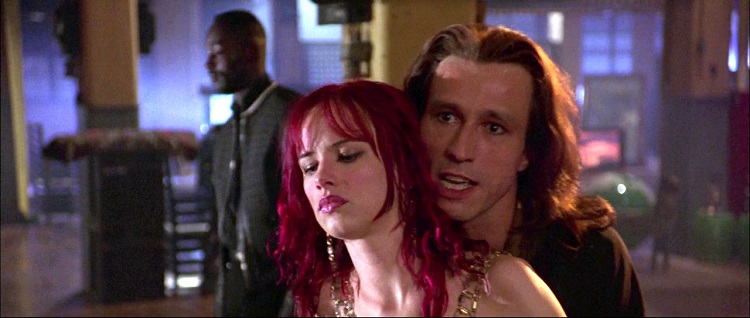
The film is not without flaws, above and beyond Tom Sizemore’s awful wig. One of them is its inadequate commitment to its social commentary. While it criticizes police violence and racism, the conclusion falls flat with a “bad apples” cop out and the ultimate redemption of the police system.
In part this is a symptom of another major flaw: the film’s unbalanced A and B plot. With both the “brain tapes serial killer” and the “cops covering their tracks” plots running in parallel and never dovetailing together the inevitable result is two separate climaxes. The police storyline is the one that the film ends on, despite it being given the least weight throughout. Perhaps this could have been improved by bringing the two plots together, or by giving the police plot more time.
Turning the film more into a “buddy story” by giving Mace more early development would also have been good. As it is, despite being the co-protagonist for most of the film she’s not even featured on the cover of many DVD editions. The result is an ending that feels flat and uneven, without the emotional catharsis that the film needed after all the buildup.
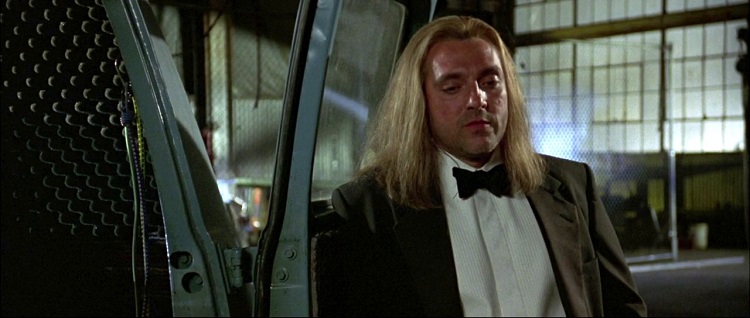
Whether because audiences left the cinema unsatisfied, or because it was simply too different from mainstream fare, the film underperformed badly at the box office. It was directed by Kathryn Bigelow based on a story by her ex-husband James Cameron. Given his prestige at the time (plus inevitable sexism at work) it’s unsurprising that critics have generally credited everything good about the film to Cameron and blamed everything bad on Bigelow. Though this is extremely unfair, it was enough to blight her career until 2008’s The Hurt Locker, for which she not only won Best Director at the Oscars but also became the first (and so far only) woman to direct a Best Picture winner. The fact that it beat James Cameron’s film Avatar for the award was probably just the icing on the cake for Bigelow.

All that said, is Strange Days worth your time in 2020? Yes, I believe it is. Though the mid-90s cellphones and the dependence on physical media do date it the film still feels fresh and contemporary, and in fact feels much more at home in the modern era than it did when it was released. Despite its flaws I’m glad I went back to watch this movie. With other 90s box office bombs like Hackers now enjoying cult success I think the time has probably come for Strange Days to get a second look.
Images via imdb.com

